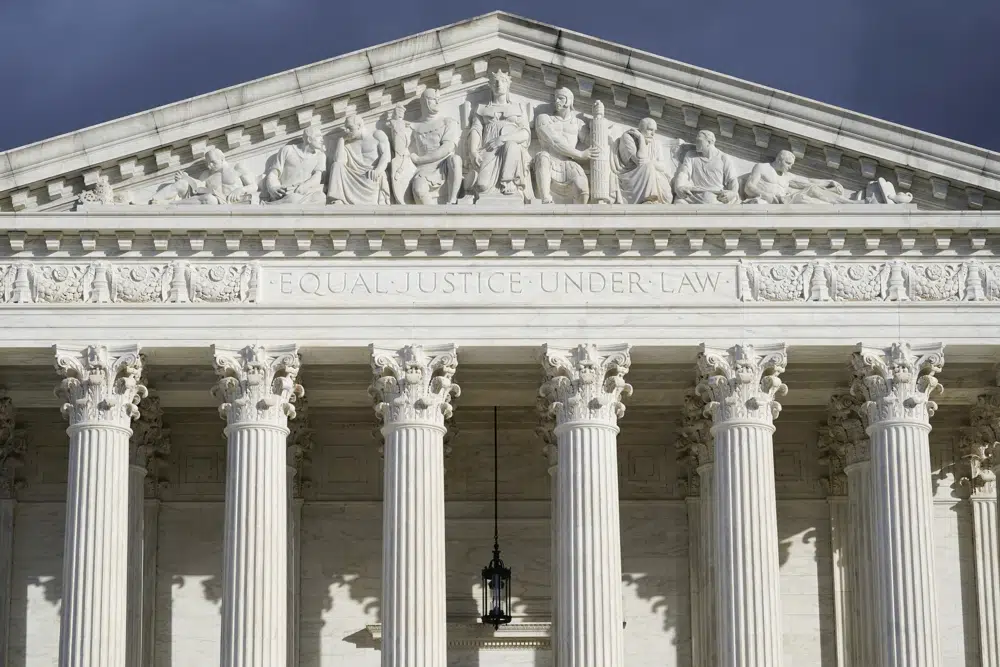We bring news that matters to your inbox, to help you stay informed and entertained.
Terms of Use and Privacy Policy Agreement
WELCOME TO THE FAMILY! Please check your email for confirmation from us.
“I think the impact of the Kansas Supreme Court’s decision is pretty significant and serious, and we’re disappointed that the U.S. Supreme Court wasn’t willing to step in,” said Sharon Brett, ACLU legal director.
The U.S. Supreme Court has refused to grant certiorari in a Kansas City, Missouri racial gerrymandering case.
According to CNN, the Kansas Supreme Court ruled that a Republican-drawn Congressional map, which divided Wyandotte County, a region within Kansas City, into two separate congressional districts, should remain in place.
Kansas voters were upset with the ruling and called on the American Civil Liberties Union for help.
The ACLU asked the high court to look at the case in a last-ditch effort to stop the newly drawn maps from going into effect, citing that the state’s ruling was discriminatory and therefore unconstitutional. In response, the Supreme Court told the ACLU that it agreed with the state court’s decision and cited that the federal court lacked jurisdiction.
ACLU legal director Sharon Brett told theGrio that the organization was “disappointed” to hear that the Supreme Court refused to hear the case.
“I think the impact of the Kansas Supreme Court’s decision is pretty significant and serious, and we’re disappointed that the U.S. Supreme Court wasn’t willing to step in and correct that misinterpretation of federal law,” she said.
Brett told theGrio that in the request to the Supreme Court, the ACLU “had appealed one very discrete issue…and that was that the Kansas Supreme Court misinterpreted the federal equal protection clause law.”
She continued, the state court “grossly misstated the legal standard that federal courts apply to a racial vote dilution claim,” which she believes resulted in an unfair outcome for Kansas residents.
The original congressional map gave minority voters a fighting chance to vote for an official they wanted to represent them, however with the new map in place, their votes may no longer hold the same weight.
Brett believes the new map will dilute “the political voices of the Black and Latino communities in Kansas City and in Wyandotte County more broadly…it’s one of the counties in the state of Kansas with the largest minority population.”
She continued, “Minority voters in Wyandotte County…really have no chance of electing their representative of choice.”
The latest congressional map will be in place for the next 10 years, so Brett suggests that if Kansas City residents want things to change in the future, they must get organized.
“The ACLU of Kansas is here to help them organize their political power and work with the other communities in the second congressional district to push back against the map that was enacted by the Kansas legislature and make sure their political voices are heard,” she stated.
Brett said the best way to move forward is to vote and remove any roadblocks that make it difficult for minorities to cast a ballot.
“One of the things that the ACLU of Kansas is working on more broadly is removing barriers to voting at the local level,” she stated.
The ACLU wants to “make it easier and more accessible for everybody to vote so that we can push back against these deliberate attempts from the Kansas Legislature to silence the political voices of the minority community,” she continued.
TheGrio is FREE on your TV via Apple TV, Amazon Fire, Roku and Android TV. Also, please download theGrio mobile apps today!

